Guyana Focus
The Peoples’ Progressive Party went to extraordinary lengths over ten months to find eighteen Guyanese willing to agree to have their names submitted to the President of Guyana for consideration to be appointed to one of the most difficult, controversial and thankless of jobs – Chair of the Elections Commission.
Of the last six names submitted, two immediately leap out for consideration. Retired Major General Joe Singh was the highly respected Chief of Staff of the Guyana Defence Force and was a former Chair of the Elections Commission for the 2002 elections, which were credibly held. Attorney at Law Teni Housty is a well-respected, well-qualified, senior, experienced, lawyer and former President of the Guyana Bar Association. Many of the other nominees are also well qualified but no one can seriously assert that the political persuasion of either of these gentlemen, if any, would influence their decisions. Many observers expected, or at least hoped, that President Granger would find suitable persons from the last six.
Of the last six names submitted, two immediately leap out for consideration. Retired Major General Joe Singh was the highly respected Chief of Staff of the Guyana Defence Force and was a former Chair of the Elections Commission for the 2002 elections, which were credibly held. Attorney at Law Teni Housty is a well-respected, well-qualified, senior, experienced, lawyer and former President of the Guyana Bar Association. Many of the other nominees are also well qualified but no one can seriously assert that the political persuasion of either of these gentlemen, if any, would influence their decisions. Many observers expected, or at least hoped, that President Granger would find suitable persons from the last six.
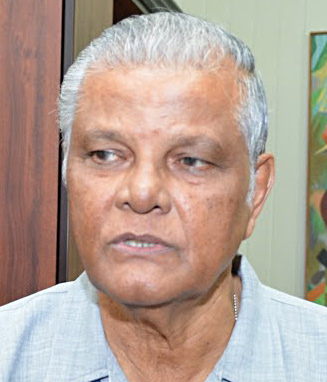
The PPP has announced that it will mount a constitutional challenge to the President’s appointment. The best time for this was after the President had rejected the first six names and in doing so had suggested that the names should be of only judges, former judges or persons qualified to be judges.
The results of the case which was filed after the Leader of the Opposition had submitted a second set of names, showed that it could have been possible to obtain an order from the court directing the President to choose a name from that first six.
The Leader of the Opposition having submitted two further sets of six names, each at the invitation of the President, for understandable reasons, has deprived him of the opportunity of having an order in relation to the first six names.
The Constitution provides that “if the Leader of the Opposition fails to submit a list as provided for,” only then can the President proceed unilaterally to make an appointment of a judge, former judge or person qualified to be a judge.
The results of the case which was filed after the Leader of the Opposition had submitted a second set of names, showed that it could have been possible to obtain an order from the court directing the President to choose a name from that first six.
The Leader of the Opposition having submitted two further sets of six names, each at the invitation of the President, for understandable reasons, has deprived him of the opportunity of having an order in relation to the first six names.
The Constitution provides that “if the Leader of the Opposition fails to submit a list as provided for,” only then can the President proceed unilaterally to make an appointment of a judge, former judge or person qualified to be a judge.
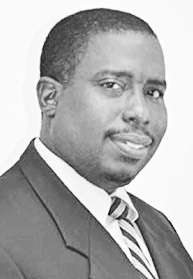
My understanding is that the Leader of the Opposition has submitted a list. The list was amended twice by the substitution of names. If so, the Leader of the Opposition has not failed to submit a list and the President’s appointment is therefore void. But I’m jumping the gun. The talented lawyers associated with the Opposition will no doubt examine the matter in more detail.
The PPP has declared non-cooperation with the Government. It is not the first time in the PPP’s history that non-cooperation was declared. After the 1973 elections, at which the PNC seized a two-third majority, the PPP declared non-cooperation and did not take up its seats in the National Assembly for 18 months.
The PNC did the same after 1992 and did not take up their seats in the National Assembly for long periods of time in the years thereafter. In both cases the respective governments carried on their business with little disruption, but great bitterness.
Based on past history with both the PPP and PNC, the PPP’s non-cooperation will mean very little in practical terms to the government’s agenda.
The victim of rigged elections in Guyana since 1968 has been the people of Guyana, but more specifically, the PPP and its supporters. It took 24 years of hard and painful struggle and suffering for democracy to be restored during which time Guyana’s economic and social and development were severely damaged and from which, according to the recent IDB report, we are still recovering. The deep fears of the PPP arising from the initial impasse over the selection of the Chair and now the eventual breakdown of the process, must be instilling deep fear and anguish over the future and the prospect of being rigged out of office for another twenty-five years.
Economic and social recovery after 1992, which commenced during the Hoyte regime beginning in 1985, has been painfully slow, notwithstanding the restoration of democratic rule. But the modest progress made so far, which has entrenched a tolerable level of engagement between the government and opposition, will be destroyed unless democracy remains the basis of governance in Guyana.
Democracy and free and fair elections are the foundation of social and economic progress. They are the basis on which good governance will be built and corruption eliminated. They are the foundation for the continuing discourse on constitutional reform and the implementation of APNU+AFC’s manifesto’s promises on a new system of government which will terminate the “winner take all system.” They are vitally necessary to build consensus on how to manage and spend oil revenue when it begins to flow and in relation to which the Opposition should have major role. Guyana’s entire future depends on the strengthening of its democracy, not the creation of situations where a large section of the population begins to question whether Guyana is going to return to the past. Many people now view this as a frightening possibility.
The Government is under an obligation to demonstrate its fidelity to the democratic process in order to sustain the confidence of the Guyanese people. Unless it takes credible steps to do so, the fears are not going to subside.
The PPP has declared non-cooperation with the Government. It is not the first time in the PPP’s history that non-cooperation was declared. After the 1973 elections, at which the PNC seized a two-third majority, the PPP declared non-cooperation and did not take up its seats in the National Assembly for 18 months.
The PNC did the same after 1992 and did not take up their seats in the National Assembly for long periods of time in the years thereafter. In both cases the respective governments carried on their business with little disruption, but great bitterness.
Based on past history with both the PPP and PNC, the PPP’s non-cooperation will mean very little in practical terms to the government’s agenda.
The victim of rigged elections in Guyana since 1968 has been the people of Guyana, but more specifically, the PPP and its supporters. It took 24 years of hard and painful struggle and suffering for democracy to be restored during which time Guyana’s economic and social and development were severely damaged and from which, according to the recent IDB report, we are still recovering. The deep fears of the PPP arising from the initial impasse over the selection of the Chair and now the eventual breakdown of the process, must be instilling deep fear and anguish over the future and the prospect of being rigged out of office for another twenty-five years.
Economic and social recovery after 1992, which commenced during the Hoyte regime beginning in 1985, has been painfully slow, notwithstanding the restoration of democratic rule. But the modest progress made so far, which has entrenched a tolerable level of engagement between the government and opposition, will be destroyed unless democracy remains the basis of governance in Guyana.
Democracy and free and fair elections are the foundation of social and economic progress. They are the basis on which good governance will be built and corruption eliminated. They are the foundation for the continuing discourse on constitutional reform and the implementation of APNU+AFC’s manifesto’s promises on a new system of government which will terminate the “winner take all system.” They are vitally necessary to build consensus on how to manage and spend oil revenue when it begins to flow and in relation to which the Opposition should have major role. Guyana’s entire future depends on the strengthening of its democracy, not the creation of situations where a large section of the population begins to question whether Guyana is going to return to the past. Many people now view this as a frightening possibility.
The Government is under an obligation to demonstrate its fidelity to the democratic process in order to sustain the confidence of the Guyanese people. Unless it takes credible steps to do so, the fears are not going to subside.
government jobs
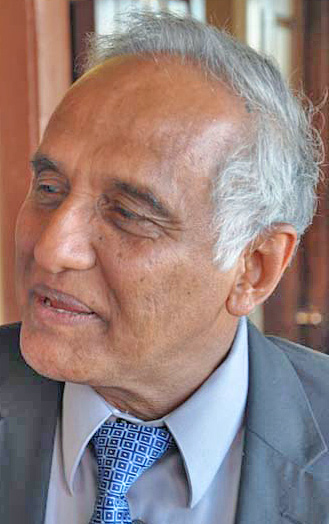
Georgetown – The resignation of Retired Major General, Joseph Singh and Chartered Accountant and Attorney-at-Law, Christopher Ram from all government jobs marks the continued isolation of the President David Granger-led administration that increasingly appears confident that it will regain power at an unfair election, Political Scientist Freddie Kissoon said Wednesday.
“I think the isolation is coming. There have been too many mistakes and I would not want to think that this is the most egregious one and, therefore, the isolation has started,” he said, adding that some of the other unpopular decisions are the granting of hefty salary increases to ministers, and the unilateral award of public servants wage and salary increases. “This is just another phase in the continued isolation of this government. I seriously believe that this government is unpopular,” he said.
Kissoon further reasoned that Singh and Ram have used their resignations as a way of alerting Guyanese that the country was being led down an undesirable constitutional and political path.
Ram last Wednesday announced his withdrawal from membership of the planning committee for the establishment of the JOF Haynes Law School as news broke in the government-controlled Guyana Chronicle that he had been an advisor to Attorney General, Basil Williams on the setting up of that legal education institution and that he had pocketed huge sums of money as an advisor to the Attorney General’s Chambers in the recently concluded case – Guyana versus the Trinidad beverage company, SM Jaleel and Company Limited – before the Caribbean Court of Justice.
“I think the isolation is coming. There have been too many mistakes and I would not want to think that this is the most egregious one and, therefore, the isolation has started,” he said, adding that some of the other unpopular decisions are the granting of hefty salary increases to ministers, and the unilateral award of public servants wage and salary increases. “This is just another phase in the continued isolation of this government. I seriously believe that this government is unpopular,” he said.
Kissoon further reasoned that Singh and Ram have used their resignations as a way of alerting Guyanese that the country was being led down an undesirable constitutional and political path.
Ram last Wednesday announced his withdrawal from membership of the planning committee for the establishment of the JOF Haynes Law School as news broke in the government-controlled Guyana Chronicle that he had been an advisor to Attorney General, Basil Williams on the setting up of that legal education institution and that he had pocketed huge sums of money as an advisor to the Attorney General’s Chambers in the recently concluded case – Guyana versus the Trinidad beverage company, SM Jaleel and Company Limited – before the Caribbean Court of Justice.
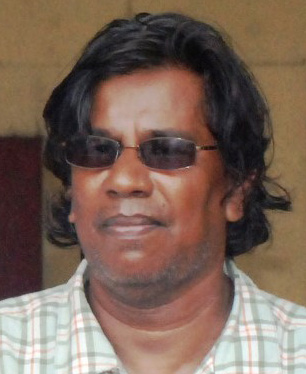
That article also went on to state that despite his connections to the government, he had still allowed himself to be nominated by Opposition Leader Bharrat Jagdeo for the post of GECOM Chairman.
In a statement issued to the media on Wednesday, Ram said his withdrawal was in support of the “heroic and exemplary decision” by Retired Major General Joseph Singh to resign from all government-related posts.
Ram used the opportunity to register his disgust at President Granger’s rejection of him as unfit and improper for the GECOM Chairmanship. He was among the 18 nominees who had been submitted by the Opposition Leader.
“Given that the Constitution deems me a fit and proper person makes President Granger’s assessment of me of no import. Indeed, I am fortified in my conviction that his decision is entirely wrong and unconstitutional,” said Ram, the host of the weekly television interview programme, Plain Talk.
Kissoon, however, said both Ram and Singh were in “serious moral conflict” because of their direct connections with the government. “We would prefer a GECOM Chairman that has no connection with any government.”
Ram, who had also appeared in the High Court case by civil engineer, Marcel Gaskin, in which an interpretation had been sought about the process for picking a GECOM Chairman, stated that Granger violated Guyana’s constitution when he bypassed the 18 nominees and unilaterally appointed Retired Justice James Patterson on October 20, 2017 to fill the post.
“While I remain committed to serving my country, I make the clear distinction between Guyana and the Government. The blatant disregard by the Granger Administration for the Constitution, the courts, the principles of good governance and for social cohesion, is a matter which should be of grave concern to all of us who claim respect and love of country,” said Ram.
One day earlier, Retired Major General Singh also suggested that he was uncomfortable continuing to work with the government since the President had also deemed that he was not fit and proper to be appointed to chair the Commission of that electoral management agency.
The Political Scientist said Ram and Singh – two high profile and immensely qualified persons – might have regarded their rejection as a “personal insult to their dignity” and instead wanted someone who is biased. “My feeling is that the President wanted someone who is partisan to the cause of his party. It did not operate with a methodology that leaves me, as an analyst, to think it was a politically sacred and professionally pure decision. Given that, I don’t think I can unequivocally say that the elections of 2020 will be pure,” he said.
Kissoon flayed the President for appointing Patterson unilaterally, instead of consulting with his coalition partners and others in the society who could have offered an objective opinion. Instead, he said the Granger-led administration has raised suspicions about its tendency towards authoritarian rule and clinging on to power through unfair means.
The former University of Guyana Political Science lecturer said based on several unpopular decisions that the government has made since coming to power in May 2015, it must be confident of retaining power in the 2020 elections after bribing Guyanese with revenues from oil production, and expecting endorsement from the American, British and Canadian governments especially if Jagdeo is the People’s Progressive Party’s (PPP) presidential candidate for those elections. “Once they pin their hopes on that, I don’t think there is any reason for them to behave democratically going into 2020 because once power is assured, there is no reason or there is no logic for an incumbent to behave democratically,” he said.
The Granger-led administration, he said, has not delivered much after taking power from the PPP which had allegedly perpetrated several undemocratic acts during its 23-year rule.
In a statement issued to the media on Wednesday, Ram said his withdrawal was in support of the “heroic and exemplary decision” by Retired Major General Joseph Singh to resign from all government-related posts.
Ram used the opportunity to register his disgust at President Granger’s rejection of him as unfit and improper for the GECOM Chairmanship. He was among the 18 nominees who had been submitted by the Opposition Leader.
“Given that the Constitution deems me a fit and proper person makes President Granger’s assessment of me of no import. Indeed, I am fortified in my conviction that his decision is entirely wrong and unconstitutional,” said Ram, the host of the weekly television interview programme, Plain Talk.
Kissoon, however, said both Ram and Singh were in “serious moral conflict” because of their direct connections with the government. “We would prefer a GECOM Chairman that has no connection with any government.”
Ram, who had also appeared in the High Court case by civil engineer, Marcel Gaskin, in which an interpretation had been sought about the process for picking a GECOM Chairman, stated that Granger violated Guyana’s constitution when he bypassed the 18 nominees and unilaterally appointed Retired Justice James Patterson on October 20, 2017 to fill the post.
“While I remain committed to serving my country, I make the clear distinction between Guyana and the Government. The blatant disregard by the Granger Administration for the Constitution, the courts, the principles of good governance and for social cohesion, is a matter which should be of grave concern to all of us who claim respect and love of country,” said Ram.
One day earlier, Retired Major General Singh also suggested that he was uncomfortable continuing to work with the government since the President had also deemed that he was not fit and proper to be appointed to chair the Commission of that electoral management agency.
The Political Scientist said Ram and Singh – two high profile and immensely qualified persons – might have regarded their rejection as a “personal insult to their dignity” and instead wanted someone who is biased. “My feeling is that the President wanted someone who is partisan to the cause of his party. It did not operate with a methodology that leaves me, as an analyst, to think it was a politically sacred and professionally pure decision. Given that, I don’t think I can unequivocally say that the elections of 2020 will be pure,” he said.
Kissoon flayed the President for appointing Patterson unilaterally, instead of consulting with his coalition partners and others in the society who could have offered an objective opinion. Instead, he said the Granger-led administration has raised suspicions about its tendency towards authoritarian rule and clinging on to power through unfair means.
The former University of Guyana Political Science lecturer said based on several unpopular decisions that the government has made since coming to power in May 2015, it must be confident of retaining power in the 2020 elections after bribing Guyanese with revenues from oil production, and expecting endorsement from the American, British and Canadian governments especially if Jagdeo is the People’s Progressive Party’s (PPP) presidential candidate for those elections. “Once they pin their hopes on that, I don’t think there is any reason for them to behave democratically going into 2020 because once power is assured, there is no reason or there is no logic for an incumbent to behave democratically,” he said.
The Granger-led administration, he said, has not delivered much after taking power from the PPP which had allegedly perpetrated several undemocratic acts during its 23-year rule.
Georgetown – The Customs Anti-Narcotics Unit (CANU) on Saturday unearthed over 147 pounds of suspected cocaine in a container of rice destined for Belgium, Western Europe. The discovery was made at the John Fernandes Wharf. Operatives from the Container Control Programme assisted in the raid.
The substance was discovered hidden in sealed 45-kilogram bags of rice bearing the label of a company called Golden Grains Investment owned by an Andre Poonai.
The company is located at Lot 111 Barr Street, Kitty.
Ranks have reportedly hit a hurdle with the investigations as they try to locate the owners of the shipment who have apparently gone into hiding.
Reports are that investigators are presently only working with “bits and pieces” of information they have gathered and have difficulties linking them.
The media reported that the raid commenced at the wharf since last Friday and the finding was uncovered just before noon the following day. The bags of rice were in five containers but the substance was found in one of the containers.
CANU said that the exercise saw the offloading and searching of five 20-foot containers filled with rice. The containers were scheduled to leave Guyana the same evening the raid started.
The broker responsible for the shipment was taken into custody but is unlikely to be charged, according to reports.
The substance was discovered hidden in sealed 45-kilogram bags of rice bearing the label of a company called Golden Grains Investment owned by an Andre Poonai.
The company is located at Lot 111 Barr Street, Kitty.
Ranks have reportedly hit a hurdle with the investigations as they try to locate the owners of the shipment who have apparently gone into hiding.
Reports are that investigators are presently only working with “bits and pieces” of information they have gathered and have difficulties linking them.
The media reported that the raid commenced at the wharf since last Friday and the finding was uncovered just before noon the following day. The bags of rice were in five containers but the substance was found in one of the containers.
CANU said that the exercise saw the offloading and searching of five 20-foot containers filled with rice. The containers were scheduled to leave Guyana the same evening the raid started.
The broker responsible for the shipment was taken into custody but is unlikely to be charged, according to reports.
Gecom appointment
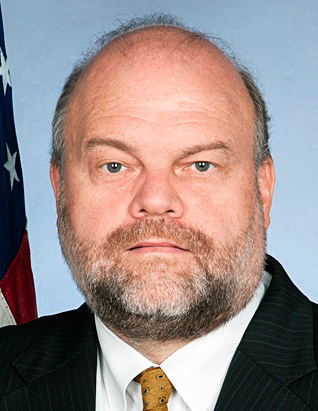
Georgetown – Following the contention over President David Granger’s unilateral appointment of retired judge James Patterson as the Guyana Elections Commission (Gecom) chairman, United States Ambassador to Guyana Perry Holloway last Friday urged dialogue to discuss the “serious disagreement,” while noting that the courts remain the best option to resolve legal disputes.
“While we urge everyone to engage in democratic dialogue to discuss differences of opinion, we stress that the Courts [are] the ultimate and best option for any legal disagreement in a functioning democracy. That said, I think all involved agree that this matter is too important for all for it to languish in the legal system, so a quick resolution to any court challenge is necessary,” Holloway said in a statement.
“I encourage all to act with dignity and respect in moving forward Guyana’s democratic development,” he added.
Holloway’s statement follows calls by some local stakeholders for a public comment on the controversial appointment, which was made last week Thursday after Granger rejected a third list of nominees that had been submitted to him by Opposition Leader Bharrat Jagdeo. Having rejected all three lists submitted by Jagdeo as unacceptable, Granger proceeded to appoint Patterson while invoking the proviso to Article 161(2). Jagdeo has maintained that the president acted illegally.
In his statement, Holloway noted that the US Embassy has been closely following the recent developments surrounding the appointment and that many sectors in Guyana have asked for him to comment using the freedom of expression offered by the constitution of Guyana.
“I recognize that as in any democracy, the Constitution of the Co-operative Republic of Guyana is the supreme law. I am confident that everyone, in spite of personal or political differences, wants to uphold this foundational document and to act within it, and I encourage everyone to do so,” he said, while acknowledging the “serious disagreement” over the appointment.
Holloway’s statement echoes sentiments voiced by UK High Commissioner Greg Quinn.
Last Saturday, Quinn told the media that the impasse over the appointment could be addressed by the courts but noted that a decision must be rendered speedily if this avenue is taken.
“As we all agree the constitution should be paramount. Everything must flow from it. The President and his supporters say he has acted within the constitution, the Leader of the Opposition and his supporters say he hasn’t. So we are at an impasse. The only way through that could be to go via the courts. But if that course is followed then the court must decide quickly. Unlike in the case of the 2015 elections petition which is still languishing. Speaking personally I think it would have been better for the president to have chosen a name from one of the 3 lists. But he clearly felt that was not possible,” Quinn had said.
Additionally, Canadian High Commissioner Lilian Chatterjee toldthe media in a brief comment on Thursday that Canada believes that democratic norms and the rule of law should be respected.
“While we urge everyone to engage in democratic dialogue to discuss differences of opinion, we stress that the Courts [are] the ultimate and best option for any legal disagreement in a functioning democracy. That said, I think all involved agree that this matter is too important for all for it to languish in the legal system, so a quick resolution to any court challenge is necessary,” Holloway said in a statement.
“I encourage all to act with dignity and respect in moving forward Guyana’s democratic development,” he added.
Holloway’s statement follows calls by some local stakeholders for a public comment on the controversial appointment, which was made last week Thursday after Granger rejected a third list of nominees that had been submitted to him by Opposition Leader Bharrat Jagdeo. Having rejected all three lists submitted by Jagdeo as unacceptable, Granger proceeded to appoint Patterson while invoking the proviso to Article 161(2). Jagdeo has maintained that the president acted illegally.
In his statement, Holloway noted that the US Embassy has been closely following the recent developments surrounding the appointment and that many sectors in Guyana have asked for him to comment using the freedom of expression offered by the constitution of Guyana.
“I recognize that as in any democracy, the Constitution of the Co-operative Republic of Guyana is the supreme law. I am confident that everyone, in spite of personal or political differences, wants to uphold this foundational document and to act within it, and I encourage everyone to do so,” he said, while acknowledging the “serious disagreement” over the appointment.
Holloway’s statement echoes sentiments voiced by UK High Commissioner Greg Quinn.
Last Saturday, Quinn told the media that the impasse over the appointment could be addressed by the courts but noted that a decision must be rendered speedily if this avenue is taken.
“As we all agree the constitution should be paramount. Everything must flow from it. The President and his supporters say he has acted within the constitution, the Leader of the Opposition and his supporters say he hasn’t. So we are at an impasse. The only way through that could be to go via the courts. But if that course is followed then the court must decide quickly. Unlike in the case of the 2015 elections petition which is still languishing. Speaking personally I think it would have been better for the president to have chosen a name from one of the 3 lists. But he clearly felt that was not possible,” Quinn had said.
Additionally, Canadian High Commissioner Lilian Chatterjee toldthe media in a brief comment on Thursday that Canada believes that democratic norms and the rule of law should be respected.



To advertise in ICW call
Call 905-738-5005